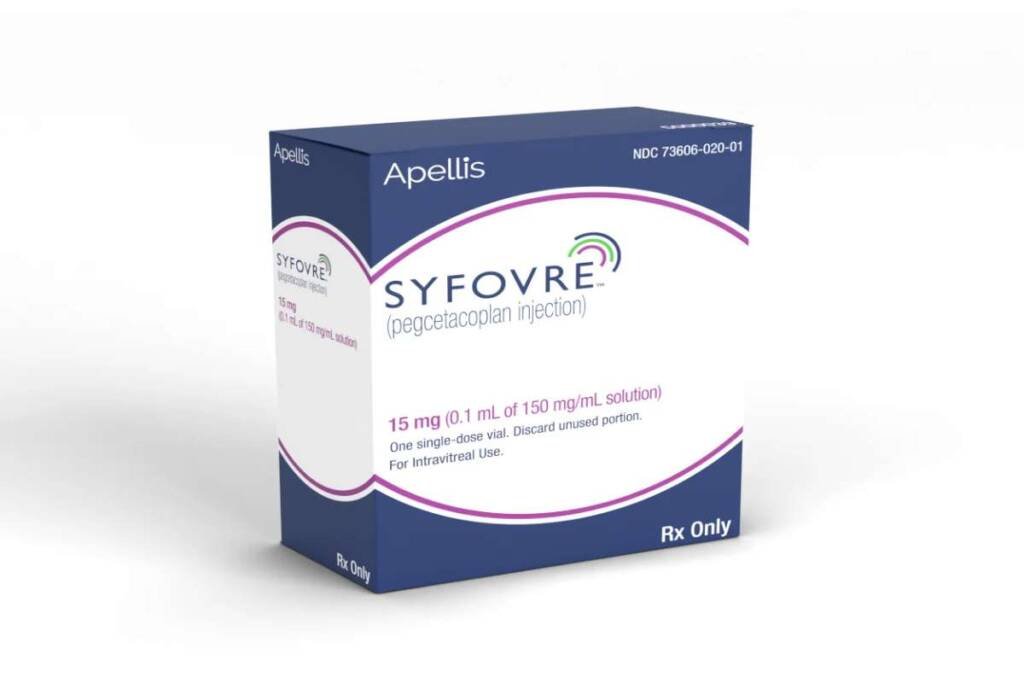Apellis, a pharmaceutical company, is zeroing in on a possible source of a rare but severe side effect associated with its groundbreaking geographic atrophy drug, Syfovre. This update on safety emerges as the company connects the use of Syfovre to eight instances of retinal vasculitis—an inflammatory condition obstructing blood flow to the retina, potentially leading to blindness.
Apellis has identified “variations” in the 19-gauge filter needle included in specific Syfovre injection kits. These filter needles are employed to extract the medication from the vial before administering an injection, as clarified in a press release by the company. It’s important to note that Apellis has emphasized that there isn’t a confirmed cause-and-effect link between the structural deviations in the 19-gauge filter needle and the infrequent occurrences of retinal vasculitis observed in real-world cases.
Nevertheless, Apellis is strongly advising healthcare practitioners to cease using injection kits equipped with the 19-gauge filter needle. Instead, they are recommending the utilization of kits featuring an 18-gauge needle. Formerly, Apellis’ injection kits contained either an 18- or 19-gauge needle; however, the company now exclusively distributes kits with the 18-gauge filter needle.
“Based on the findings from our investigation, we believe it is prudent that practitioners only use the kits with the 18-gauge filter needle, which are already in distribution. This recommendation is out of an abundance of caution as patient safety is our top priority.”
– Caroline Baumal, M.D., chief medical officer of Apellis
Syfovre achieved a historic milestone in receiving approval for treating geographic atrophy in February. In July, the American Society of Retinal Specialists (ASRS) issued a cautionary letter to medical professionals, flagging instances of eye inflammation and reporting six cases of occlusive retinal vasculitis in patients who had received Syfovre.
The ASRS did not attribute these safety concerns to a specific batch of the product, but it did note that these side effects manifested one to two weeks after the patients’ initial Syfovre injections.
Related: Apellis’ Syfovre Linked To Eye Inflammation In Geographic Atrophy Patients
Subsequently, Apellis launched an independent investigation into the matter. In late July, the company disclosed that it had not found any indications of issues related to drug product or manufacturing processes connected to Syfovre.
Presently, Apellis reveals that a total of eight events of retinal vasculitis have occurred—five occlusive and three non-occlusive. The most recent confirmed case was in June 2020, based on a comprehensive review of reported side effects.
As of now, over 100,000 vials of Syfovre have been distributed for administration in real-world clinical trials. Additionally, more than 78,000 vials have been shipped since the drug’s launch, encompassing both commercial and sample vials delivered to physician practices.
In the second quarter of 2023, Apellis witnessed substantial US product sales totaling $89.6 million. Notably, Syfovre contributed over $67 million of this figure, in contrast to $22.3 million attributed to Empaveli—another drug sharing the active ingredient pegcetacoplan and sanctioned for paroxysmal nocturnal hemoglobinuria (PNH).
Overall, Apellis recorded total revenues of $95 million for the quarter, marking a significant surge from the $16.3 million generated during the same period in the previous year. This financial growth reflects the company’s dedication to addressing safety concerns while maintaining its market presence and furthering medical advancements.





























